19 Interesting Quotes By John M. Ford That Will Make You Laugh Your Head Off
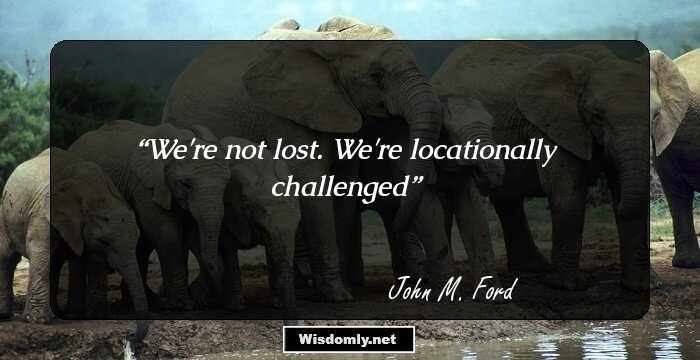
We're not lost. We're locationally challenged
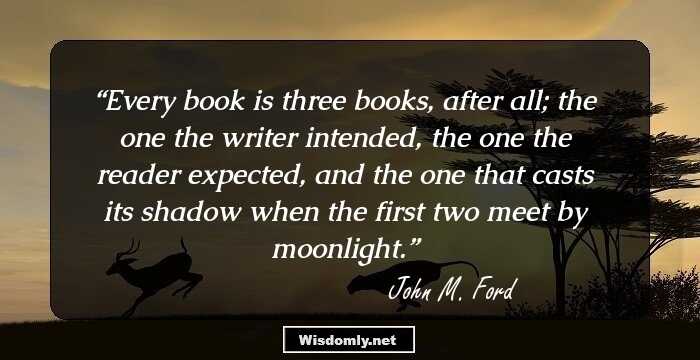
Every book is three books, after all; the one the writer intended, the one the reader expected, and the one that casts its shadow when the first two meet by moonlight.
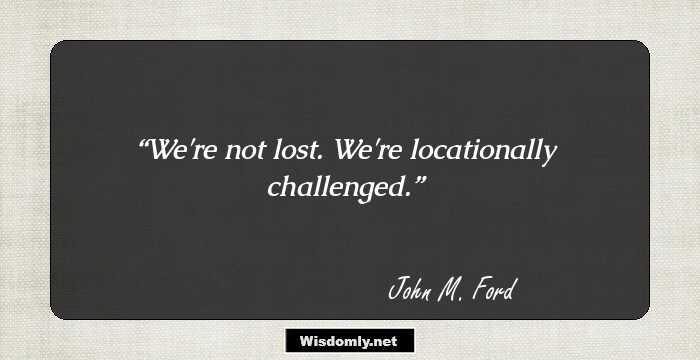
We're not lost. We're locationally challenged.
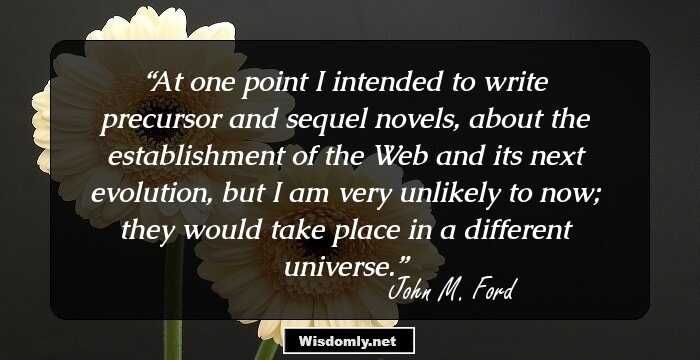
At one point I intended to write precursor and sequel novels, about the establishment of the Web and its next evolution, but I am very unlikely to now; they would take place in a different universe.
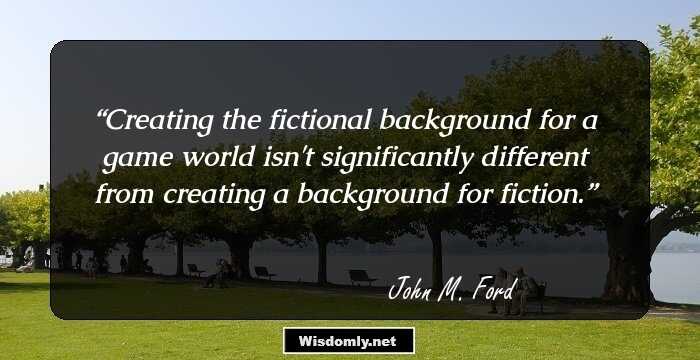
Creating the fictional background for a game world isn't significantly different from creating a background for fiction.
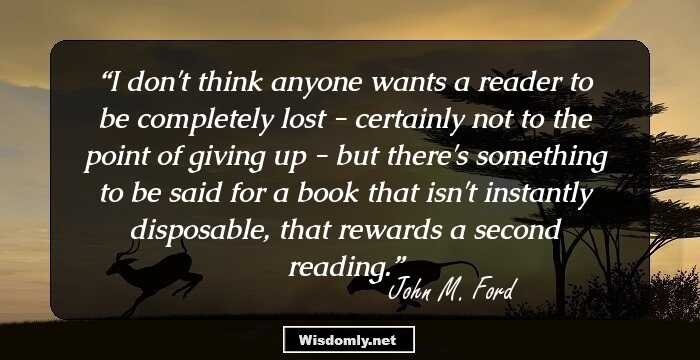
I don't think anyone wants a reader to be completely lost - certainly not to the point of giving up - but there's something to be said for a book that isn't instantly disposable, that rewards a second reading.
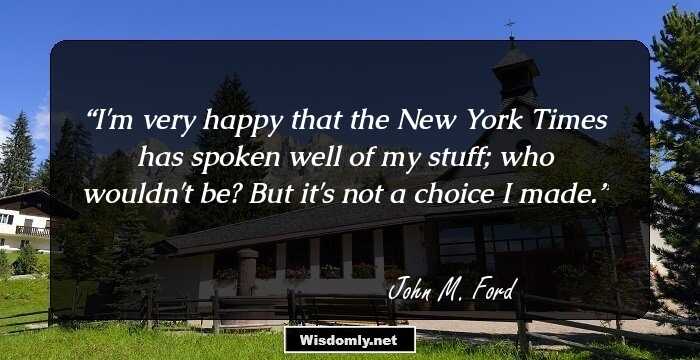
I'm very happy that the New York Times has spoken well of my stuff; who wouldn't be? But it's not a choice I made.

If I were to write Web now, it would be a much, much darker book.
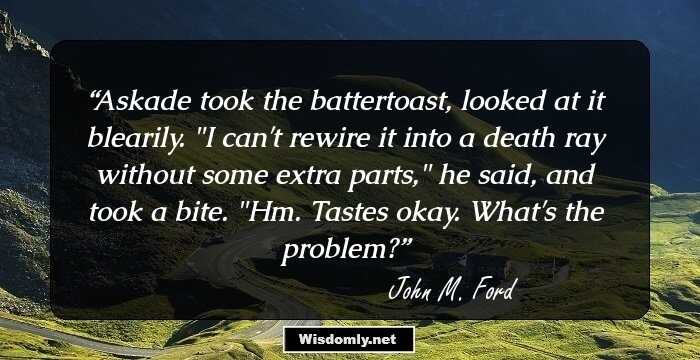
Askade took the battertoast, looked at it blearily. "I can't rewire it into a death ray without some extra parts," he said, and took a bite. "Hm. Tastes okay. What's the problem?
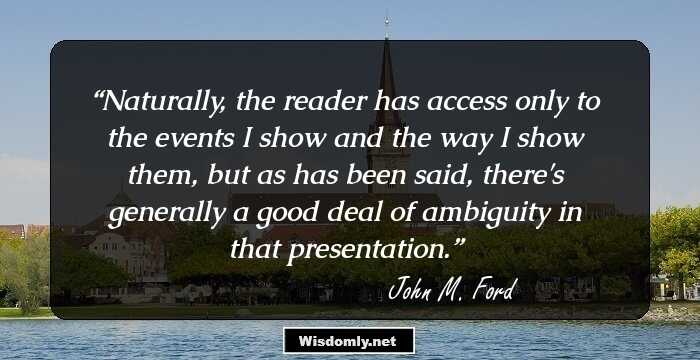
Naturally, the reader has access only to the events I show and the way I show them, but as has been said, there's generally a good deal of ambiguity in that presentation.
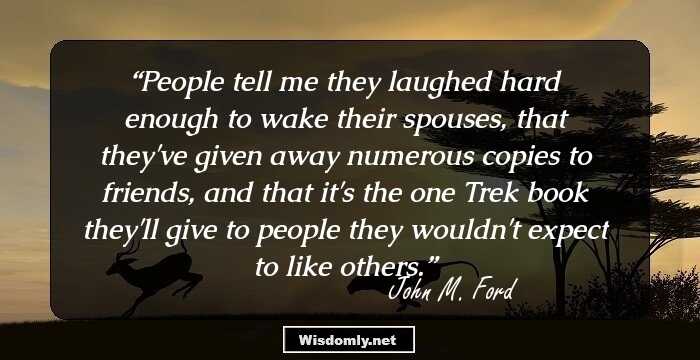
People tell me they laughed hard enough to wake their spouses, that they've given away numerous copies to friends, and that it's the one Trek book they'll give to people they wouldn't expect to like others.
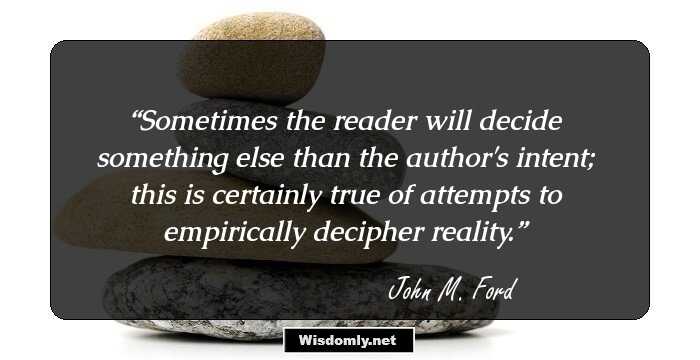
Sometimes the reader will decide something else than the author's intent; this is certainly true of attempts to empirically decipher reality.
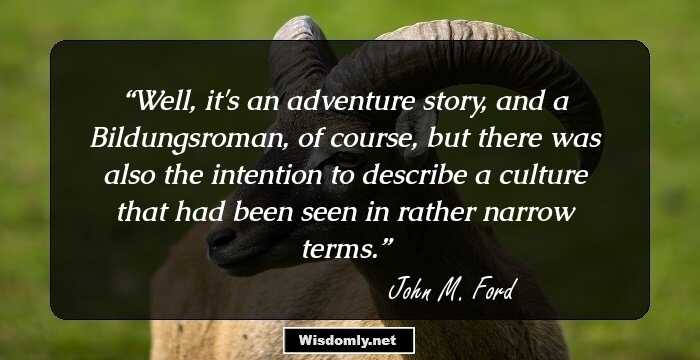
Well, it's an adventure story, and a Bildungsroman, of course, but there was also the intention to describe a culture that had been seen in rather narrow terms.
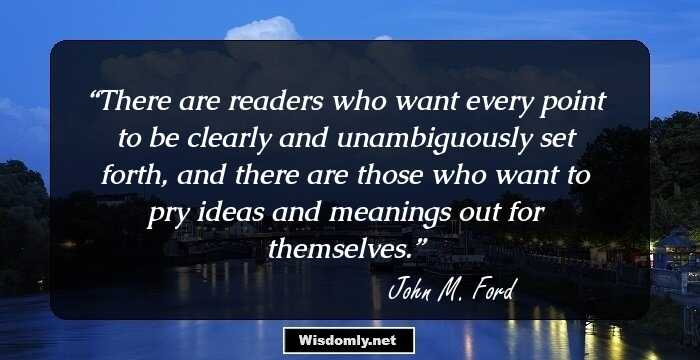
There are readers who want every point to be clearly and unambiguously set forth, and there are those who want to pry ideas and meanings out for themselves.
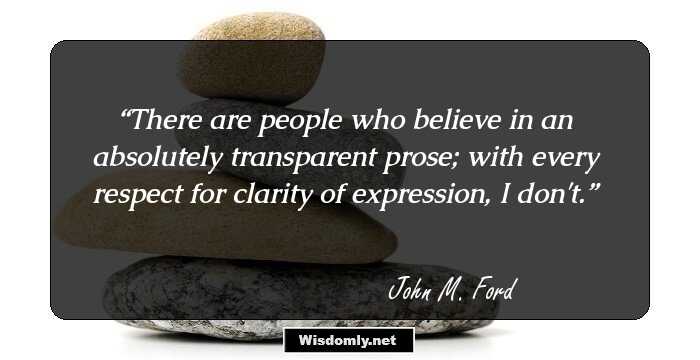
There are people who believe in an absolutely transparent prose; with every respect for clarity of expression, I don't.
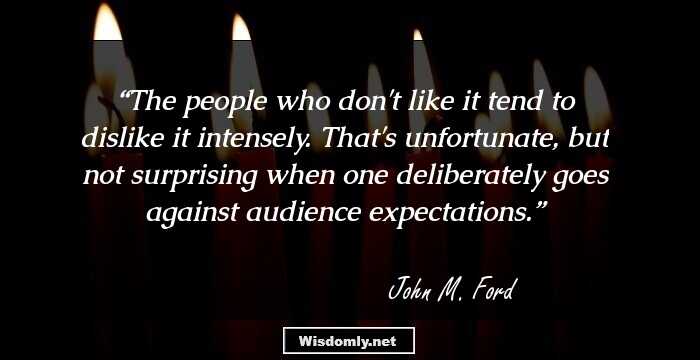
The people who don't like it tend to dislike it intensely. That's unfortunate, but not surprising when one deliberately goes against audience expectations.
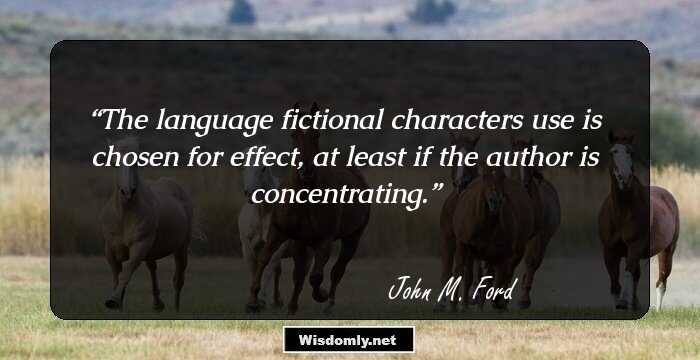
The language fictional characters use is chosen for effect, at least if the author is concentrating.
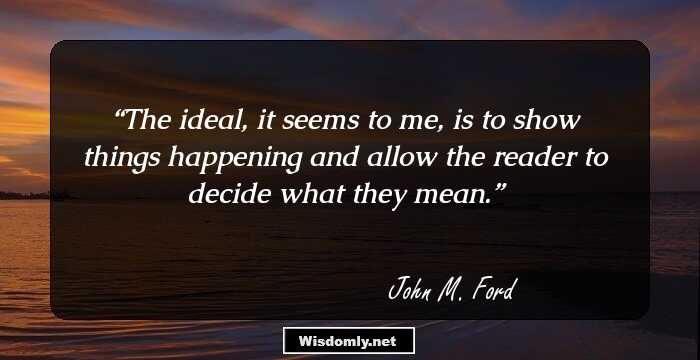
The ideal, it seems to me, is to show things happening and allow the reader to decide what they mean.
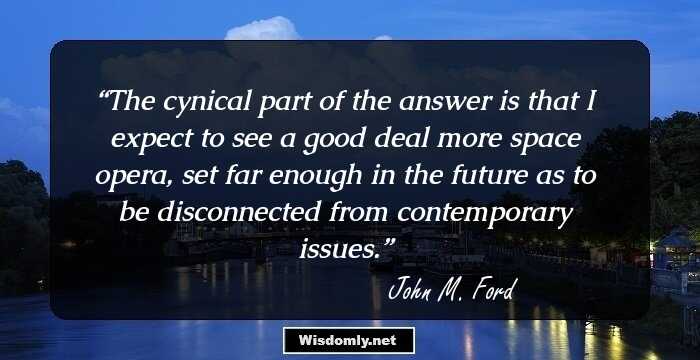
The cynical part of the answer is that I expect to see a good deal more space opera, set far enough in the future as to be disconnected from contemporary issues.










